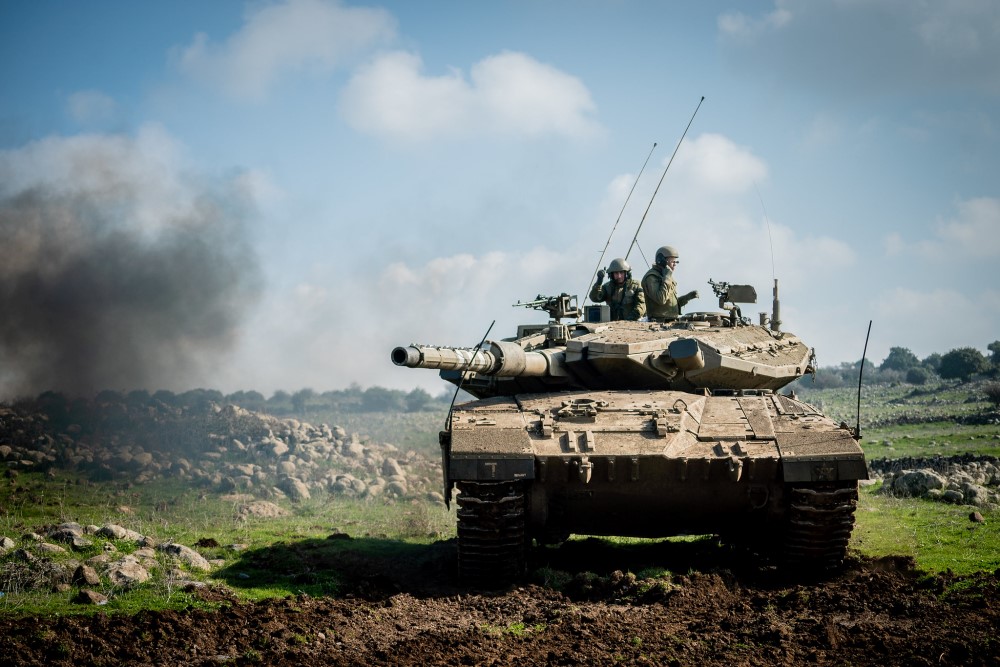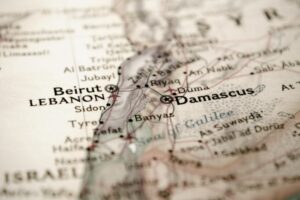
While Israel’s declared aim in Gaza was to completely dismantle Hamas, the IDF’s war objectives in Lebanon are very different. The bottom line: Israel has no intention of launching an all-out campaign to uproot Hezbollah from Lebanon. At least not at this time.
After a year marked by intense fighting in Gaza and other fronts, Israel’s political and military leaders recognize that another full-scale war – this time aimed at eliminating all Hezbollah hubs in Lebanon – is unrealistic.
Instead, the current IDF operation in Lebanon is designed to be limited in scope, neutralizing the immediate threat posed by Hezbollah near Israel’s northern border. This key objective will add to the substantial damage Hezbollah has already suffered in the war, leaving the organization significantly weakened but still alive.
Hezbollah spent years building an extensive terror infrastructure in southern Lebanon, particularly in villages and towns close to the Israeli border. This included fortified combat positions, underground tunnels, and a large stockpile of weapons.
This massive military array was built to enable Hezbollah to launch a large invasion into Israeli territory. The IDF’s ground operations are systematically targeting these sites in order to neutralize the group’s ability to carry out such raids.
However, this campaign is limited to securing the border area and mitigating the most immediate threats. While operations may be expanded to more areas, there will be no deep incursion into Lebanon to take out Hezbollah’s strongholds across Lebanon.
Operation to end in weeks?
The IDF’s ground operations in Lebanon are expected to end in two to three weeks, with a potential ceasefire deal to follow, says military journalist Yossi Yehoshua. An Israeli official also predicted earlier that the current incursion will be completed in weeks, N12 News reported.
However, Yehoshua emphasized that Israel needs to enter truce negotiations from a position of strength. Until that time, the IDF must continue to hit Hezbollah hard, including targets in Beirut, to pressure the group into a favorable deal.
Notably, the IDF halted attacks on Lebanon’s capital for several days after US President Biden pressed PM Netanyahu to avoid civilian casualties. The American demand followed an airstrike on a senior Hezbollah member in a populated area of Beirut, outside the group’s stronghold in the Dahiya district.
Yehoshua stressed that fully destroying Hezbollah, which is far larger than Hamas in Gaza, is not feasible. He also warned against dragging the war out needlessly. Instead, Israel’s political leaders will aim to secure a favorable deal to conclude the conflict and sharply reduce the threat posed to northern Israel residents.
Israel seeks buffer zone
Meanwhile, the IDF advised the government that any deal to end the current conflict must grant Israel the right to carry out future military operations in Lebanon, including ground incursions if necessary.
The army insists that Israel can’t rely on international troops to enforce such a deal or keep Hezbollah away from southern Lebanon, N12 News reports. This follows the bitter experience of the past 18 years, as UN forces entirely failed to prevent Hezbollah’s military buildup.
However, according to Lebanese media reports, Israel is looking to establish a 10-kilometer buffer zone inside Lebanon with foreign forces guarding some areas. Citing diplomatic sources, Lebanese daily Al Akhbar claimed that this plan was relayed to Lebanon’s government by US officials.
Under this proposal, the IDF would maintain a temporary presence in a 3-km strip of land inside Lebanon, while a further 7 km would be placed under the control of UN troops and the Lebanese army.
According to earlier reports, IDF Northern Command Chief Gordin urged the government to approve a temporary Israeli-controlled buffer zone. In any case, such limited measures will fall far short from the IDF’s intensive all-out campaign to destroy the Gaza terror base.
Overall, Israel aims to significantly degrade Hezbollah and uproot its presence near the border, not to fully eradicate it at this time. Ultimately, much will depend on Israel’s ability to secure a robust deal, and to actively prevents Hezbollah from restoring its status and power in the months and years ahead.


